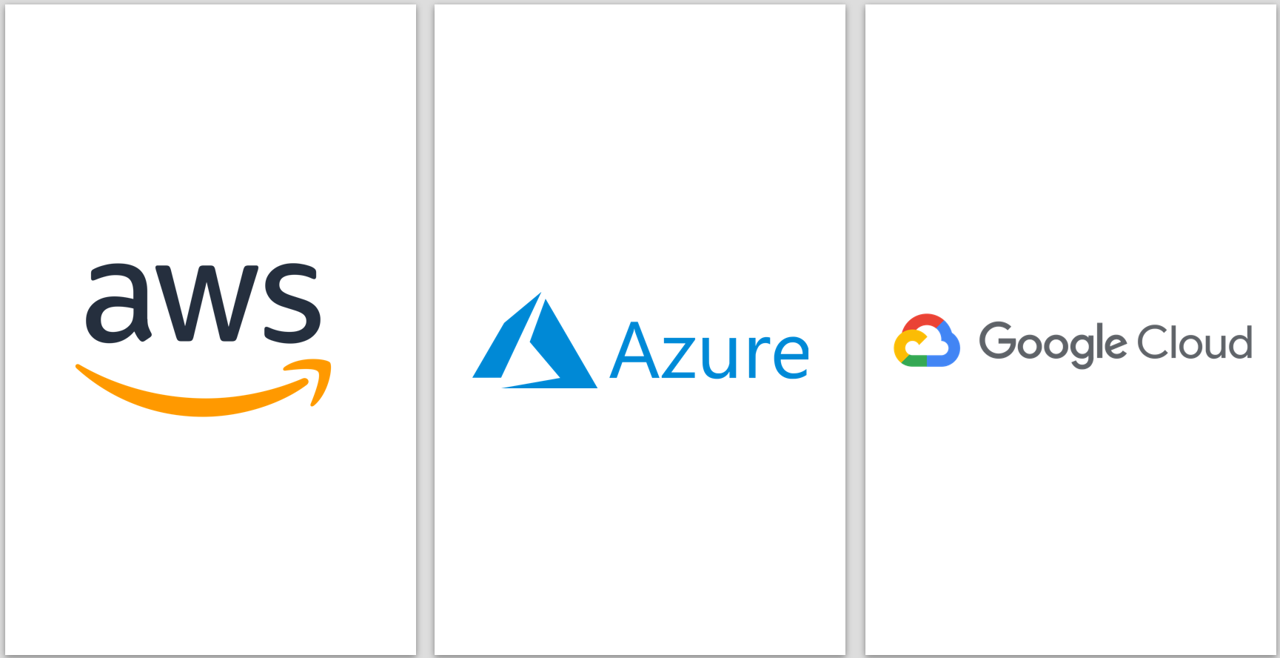As a DevOps engineer, the choice of cloud platform can significantly impact both workflow and project success. Amazon Web Services (AWS), Azure, and Google Cloud Platform (GCP) are three major players in the cloud services market, each of them offers a unique set of features and pricing structures.
In this blog post, we’ll explore these platforms from the perspective of features and costing to help you make an informed decision while choosing the cloud platform for your applications through various chapters discussed below in detail.
Free Tier Limits
I) AWS Free Tier
- Duration: 12 months from signing up with a limited set of always-free services.
- Key Offerings:
- EC2: 750 hours/month of t2.micro or t3.micro instances.
- S3: 5 GB of standard storage.
- RDS: 750 hours of db.t2.micro or db.t3.micro instances for certain databases.
- Lambda: 1 million requests and 400,000 GB-seconds of compute time per month.
- Limitations: Some services are always free, while others expire after 12 months.
II) Azure Free Tier
- Duration: 12 months plus a set of always-free services.
- Key Offerings:
- Virtual Machines: 750 hours of B1S VM.
- Blob Storage: 5 GB of LRS hot block storage.
- SQL Database: 250 GB of S0 database.
- Functions: 1 million requests per month.
- Limitations: Always-free services are limited, and many resources are capped by regions.
III) GCP Free Tier
- Duration: 12 months plus a set of always-free services.
- Key Offerings:
- Compute Engine: 1 f1-micro VM instance per month (only in certain regions)
- Cloud Storage: 5 GB of standard storage.
- BigQuery: 1 TB of queries per month.
- Cloud Functions: 2 million invocations per month.
- Limitations: The $300 credit is for 90 days; after that, only always-free resources.
Features Comparison
- Compute Services:
- AWS: Amazon EC2 provides a wide variety of instance types and sizes, enabling users to tailor configurations for specific workloads. AWS Lambda supports serverless computing, allowing for event-driven architecture without the overhead of managing servers.
- Azure: Azure Virtual Machines also offers diverse instance types. Azure Functions, similar to AWS Lambda, allows developers to run event-driven serverless applications.
- GCP: Google Compute Engine is known for its scalability and custom machine types, which are highly beneficial for resource-intensive applications. Google Cloud Functions supports serverless execution as well through Cloud Functions.
- Storage Solutions:
- AWS: Amazon S3 offers highly durable and scalable object storage, with advanced features like lifecycle policies and cross-region replication. AWS EBS provides block storage for EC2 instances.
- Azure: Azure Blob Storage is comparable to S3, supporting unstructured data storage. Azure Disk Storage offers similar block storage capabilities for Azure VMs.
- GCP: Google Cloud Storage also provides durable object storage with built-in redundancy. Persistent Disks in GCP function similarly to AWS EBS.
- Networking:
- AWS: Amazon VPC allows for network isolation and security, with features like Security Groups and NACLs. ‘AWS Direct Connect’ offers dedicated network connections.
- Azure: Azure Virtual Network provides similar capabilities, including VPN and ExpressRoute for secure connections.
- GCP: Google Cloud VPC allows for global private networking and unique features like Shared VPCs for resource sharing across projects.
- CI/CD Tools:
- AWS: AWS CodePipeline and CodeDeploy facilitate continuous integration and deployment, integrating seamlessly with other AWS services.
- Azure: Azure DevOps Services provide a robust set of tools for CI/CD, including Azure Pipelines, which integrates with GitHub and other repositories.
- GCP: Google Cloud Build supports CI/CD with a focus on integration with Google’s other services and GitHub.
- Monitoring and Logging:
- AWS: Amazon CloudWatch offers extensive monitoring and logging capabilities, allowing for alerts and dashboards.
- Azure: Azure Monitor and Application Insights provide similar functionalities, with deep integration into Azure services.
- GCP: Google Cloud Operations Suite (formerly Stack driver) provides monitoring and logging tools that offer insights into application performance.
Costing Comparison
1) Pricing Models
- AWS: AWS employs a pay-as-you-go model with savings plans and reserved instances, allowing users to optimize costs based on usage patterns. Pricing can be complex due to the number of services offered.
- Azure: Azure also uses a pay-as-you-go model, with options for reserved capacity. Azure’s pricing tends to be competitive, especially for Windows-based workloads.
- GCP: GCP offers a unique pricing structure that includes sustained use discounts and committed use contracts, making it appealing for long-term projects.
** All these cloud platforms have pricing calculators, which are user-friendly and transparent. Using them, you can estimate the costing for your application to be deployed on these platforms.
II) Cost Considerations
- Compute Costs: While all three platforms offer competitive pricing for compute services, GCP often stands out with sustained usage discounts.
- Storage Costs: AWS S3 and GCP Cloud Storage typically have comparable pricing, while Azure Blob Storage is competitive but can vary based on redundancy options.
- Data Transfer Costs: Data egress charges can vary significantly across platforms. AWS and Azure typically charge for data transfer out of their networks, while GCP has a more straightforward model that can be more cost-effective for certain workloads.





Rose
Thanks a lot for the amazing post! It truly means a lot to me.